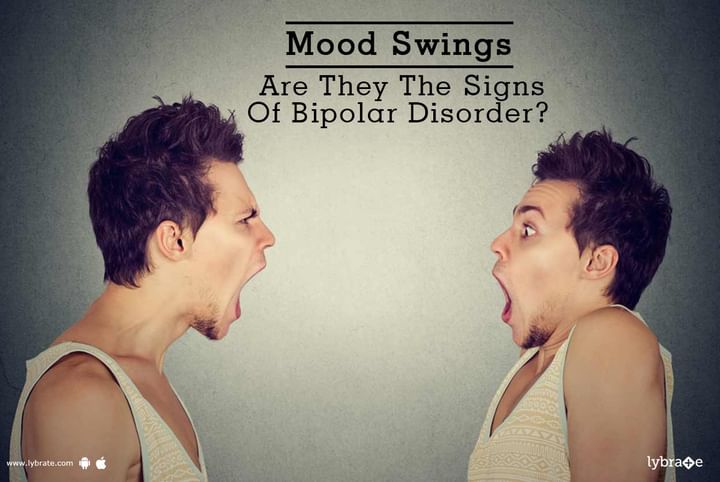Mood Swings - Are They The Signs Of Bipolar Disorder?
Bipolar disorder is a mental disease that is characterized by sudden changes in mood. People suffering from the condition may experience severe episodes called mania and the disorder can even cause depression among patients. Bipolar patients can also have difficulty maintaining relationships in their personal life, due to the unpredictable nature of their moods and behaviour.
Risk factors for bipolar disorder -
Bipolar disorder is associated with a number of risk factors such as the following:
• Genetics - People who have a family history of the condition. Particularly, if an individual’s siblings and parents suffer from the disorder, they face a greater risk.
• Environment - Stressful or traumatic events can lead to bipolar disorders as well. For instance, the death of a loved one may push people off the edge and lead to the mental affliction.
• Brain structure - People with certain brain structures may be at a higher risk from the bipolar disorder
Symptoms of bipolar disorder
Three main symptoms characterize bipolar disorder- mania, hypomania and depression. Each of these symptoms can lead to rapid mood swings in a person suffering from bipolar disorder.
• Mania -
Mania is an episode where the person suffering from the disorder starts to feel extremely high in terms of emotion. They become hyperactive, excited and even euphoric. During such an episode, people are also liable to engage in drug use.
• Hypomania -
Hypomania is similar to mania but is not as severe. Hypomania only affects people suffering from bipolar II disorder. Even though hypomania may not be noticeable to people around the patient, the person affected may notice an unexpected change in their moods.
• Depression -
Depression is just opposite of what mania is. It manifests a feeling of hopelessness, lethargy, remorse. Suicidal thoughts also accompany most cases of depression. Even though depression can be caused as a separate condition, people affected with bipolar disorder undergo periodic depression and mania, which can be even more difficult to handle.
Treatment for bipolar disorder
- Contemporary medicine does not have a cure for bipolar disorder as of now. However, with proper medication and therapy, a patient suffering from the mental illness can manage the symptoms and reduce the mood swings. Aside from medications, such as antipsychotics, antidepressants and mood stabilizers, patients may be prescribed psychotherapy as well.
- Cognitive behavioural therapy and psycho-education are vital parts of the treatment. The former is basically a talk therapy session between the psychologist and the patient, while the latter looks to educate the patient and their families about the bipolar disorder and ways of living with the condition.
- Creating a strict routine for daily life activities can also help deal with the disorder and reduce the symptoms.



+1.svg)
